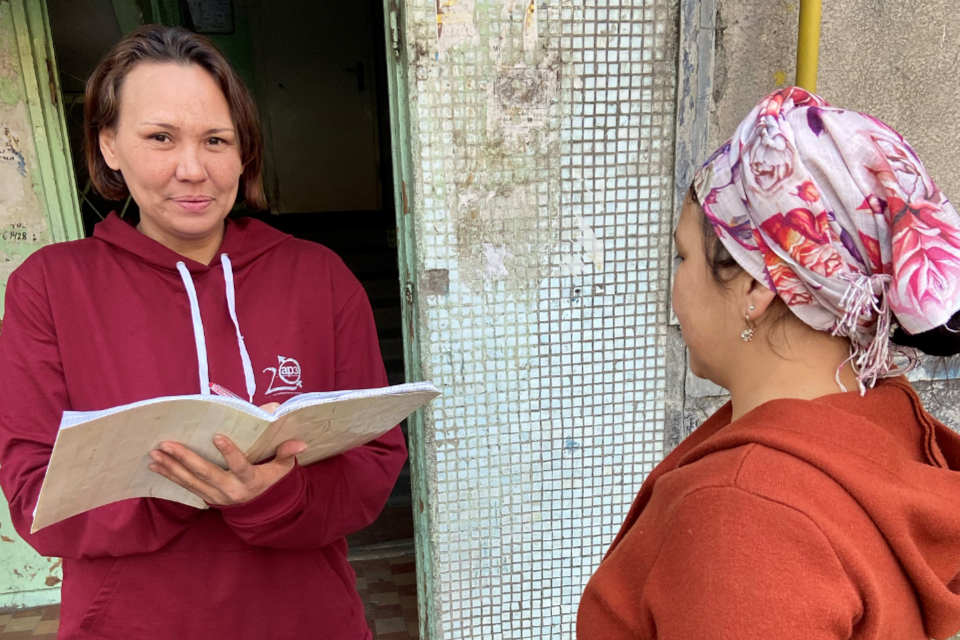From embarrassment to empowerment, ‘Positive Champions’ fight HIV stigma in Kyrgyzstan
Date:

When Kamilla Rakhimova first found out she was HIV-positive back in 2013, she felt as though her world was coming crashing down around her.
“For a long time, it seemed to me that God punished me with HIV infection for my sins,” says the 42-year-old from Osh, southern Kyrgyzstan. “It was a great shock for me and the journey to where I am today has been a long one. I started an [anti-retroviral] ARV therapy experiment, which was a struggle at first with side-effects, but with time I became confident that the treatment allows me to continue my life.”
Later, Rakhimova began working as a peer consultant at a local NGO that supports people living with HIV, where she opened up about her own experience to other people who were HIV-positive.
“But at some point, I realized that I wanted to do more. I wanted to change the way society treats people living with HIV,” she says.
The sentiment drove Rakhimova to get involved in a UN Women project that works to counteract the discrimination and stigma faced by people living with HIV. A psychologist helped her confront and overcome her own self-stigma and inner conflicts. And alongside another 20 participants, she took part in trainings on ‘positive deviance’. The project’s approach strengthens and inspires ‘Positive Champions’ to realize their potential, building their confidence and courage to overcome the barriers that have plagued them for years.
“I came to realize that I am a living example that the stereotypes about HIV are not true: I have two beautiful and healthy children thanks to ARV treatment and a husband who is HIV-negative. My husband and I represent a discordant couple. He supports me and my intentions,” she says.
Shifting her mindset from embarrassment to empowerment, Rakhimova has not only come to terms with her HIV status but dared to go public with it in a conservative society where the virus is still shrouded in shame and secrecy.
Today, she works with other women and girls and with communities to bring about positive social change as an active partner in two UN Women projects funded by UNAIDS. They seek to address intersecting forms of discrimination, including against people living with HIV, and promote innovations in the fight to end violence against women. Both projects focus on tackling social stigma and negative stereotypes through change-makers like Rakhimova, who dare to speak out in their communities.
Rakhimova publicly revealed her HIV-positive status for the first time at the final project conference and is now a proud ‘Positive Champion’ and advocate for people living with HIV. By sharing her own example, she uses a non-standard yet effective approach to changing social attitudes and stigmas.
According to Ulziisuren Jamsran, UN Women Representative in Kyrgyzstan, such approaches contribute to solving problems in a sustainable way. “UN Women started testing the ‘positive deviance’ approach in the area of HIV since last year and the results are promising. Previously, it has been tested as part of reducing discrimination and self-stigma among women victims of domestic violence. If you do not solve the problem of self-stigma and free a person from obsessive ideas that he or she is inferior and unworthy, then it is impossible to address discrimination, even the most wonderful laws will not work.”
Rakhimova is one of the first women in southern Kyrgyzstan to publicly reveal her HIV status.
“Now, I breathe freely,” she says. “I am an HIV-positive woman with healthy children, and I can inspire others.”